SUMMARY
This is AI generated summarization, which may have errors. For context, always refer to the full article.
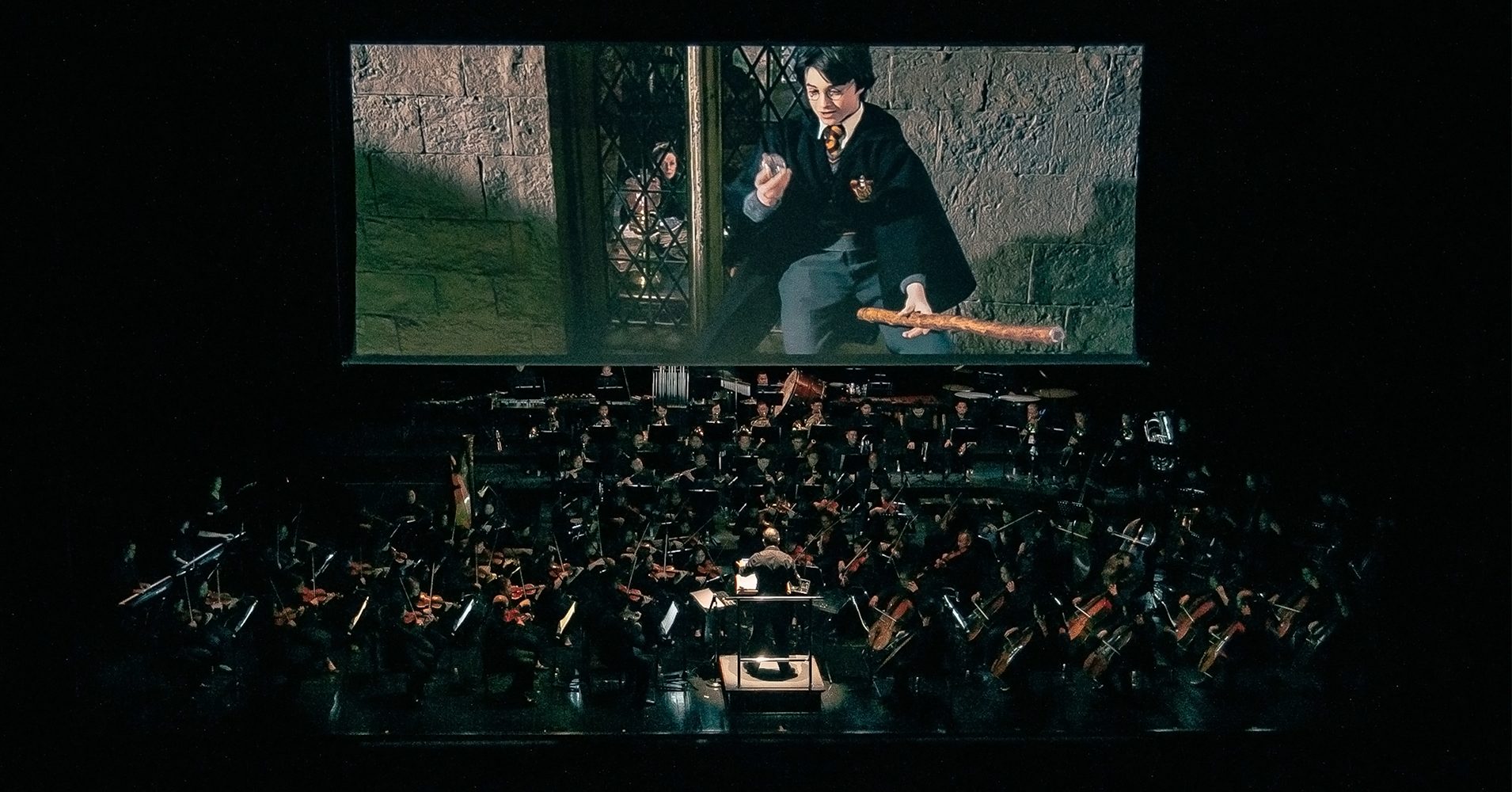
MANILA, Philippines – After all this time – always – Hogwarts will be home.
As JK Rowling herself said, “Whether you come back by page or by the big screen, Hogwarts will always be there to welcome you home.”
It has already been two decades since The Sorcerer’s Stone premiered in cinemas, and almost a little less than a decade since the last movie, The Deathly Hallows Part 2. Count in those times people tirelessly queued for Rowling’s heavy tomes in bookshops all over the world. (READ: JK Rowling confirms end of ‘Harry Potter’: ‘Harry is done now’)
Yet the enchantment of the Wizarding World persists. It’s still a juggernaut of a franchise that lives on through legions of loyal fans around the world. (READ: Harry Potter’s return in the ‘Cursed Child’: 10 things you need to know)
When the chance to watch The Sorcerer’s Stone set to live music came about for Potterheads in Manila, it was irresistible to pass up.
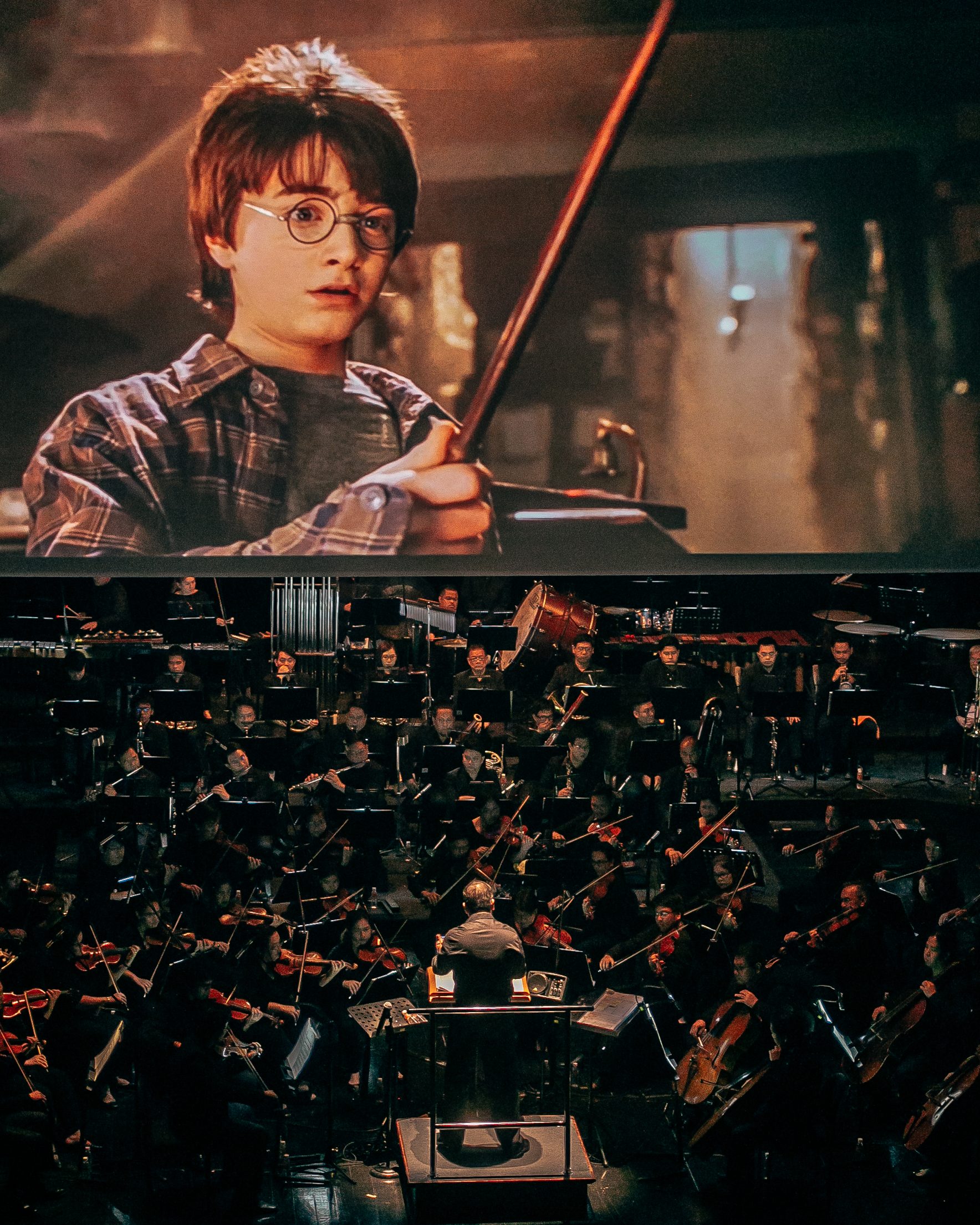
Bringing the magic to Manila
The Sorcerer’s Stone live in concert was the first local edition of CineConcerts’s Harry Potter series. It was brought here by CC:Concepts, the same company that produced the world premiere of the Call Me by Your Name film concert also here in Manila.
The ABS-CBN Philharmonic Orchestra, under the baton of its musical director Maestro Gerard Salonga, performed John Williams’s iconic score for the movie.
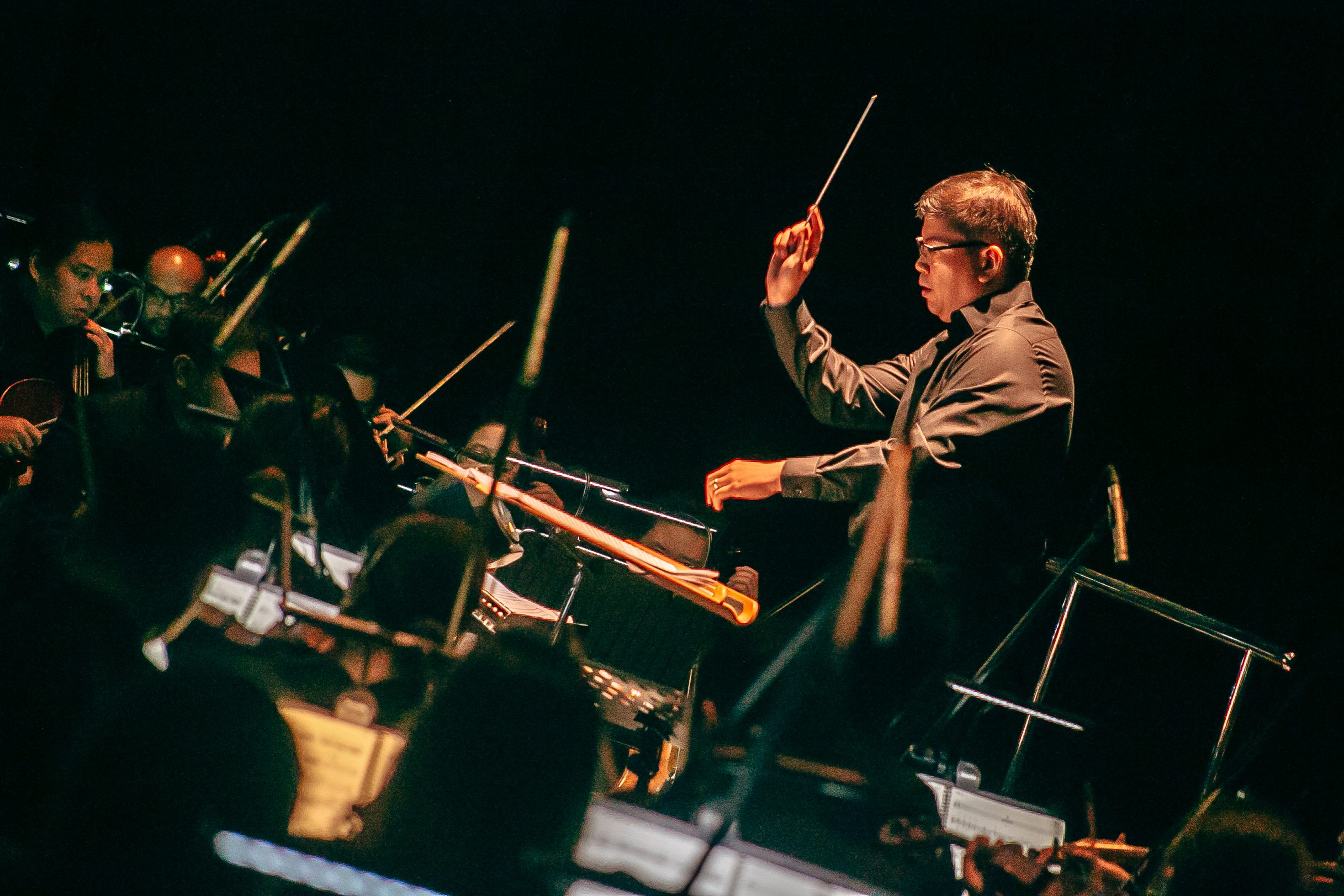
As the first of its kind, CC:Concepts’s previous film concert was an extraordinary case for the producers. The music had to be arranged for the orchestra from scratch, including the Italo disco tracks and Sufjan Stevens’s original songs. With Harry Potter, however, they’re mounting something that has already been done in other parts of the world.
“We’ve already been eyeing it because when we got into film concerts, we were already aware that they did Harry Potter as a film concert,” said managing director and founding partner Mikhail Schemm in an interview with Rappler.
“The appeal of it – plus the combination of having a John Williams score and having a live orchestra perform it with the film – we thought that would be a home run for the Philippines.”
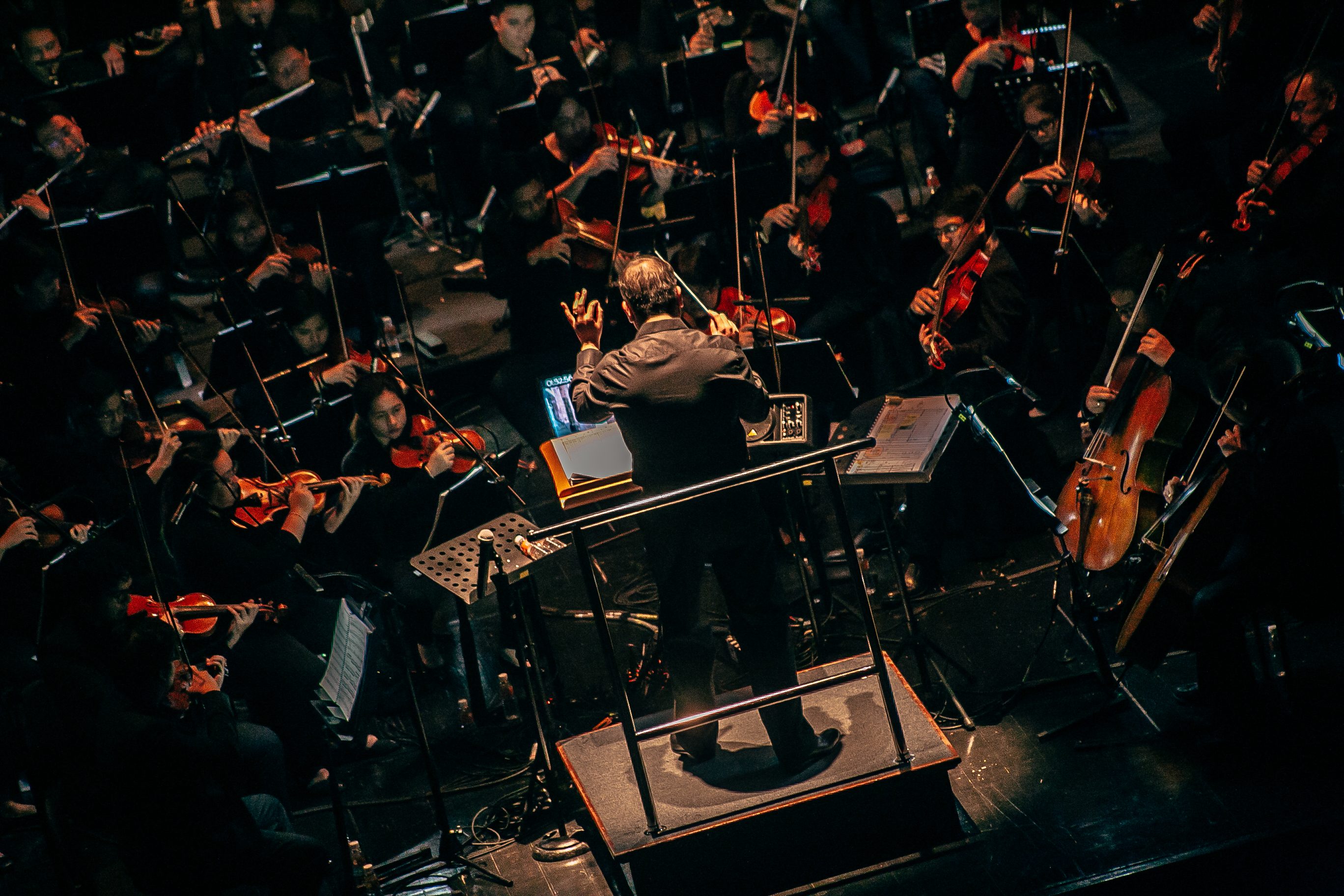
Company director and co-founder Katrina Razon said that coming off the heels of Call Me by Your Name, Harry Potter came about naturally, considering the scale of the Potterhead community.
“A franchise like Harry Potter – especially its concert series – has the ability to bring its fans to the cinematic experience,” she said. “But with a live orchestra at that, surrounded by the community of fans itself, it was something that we really wanted to experiment with.”
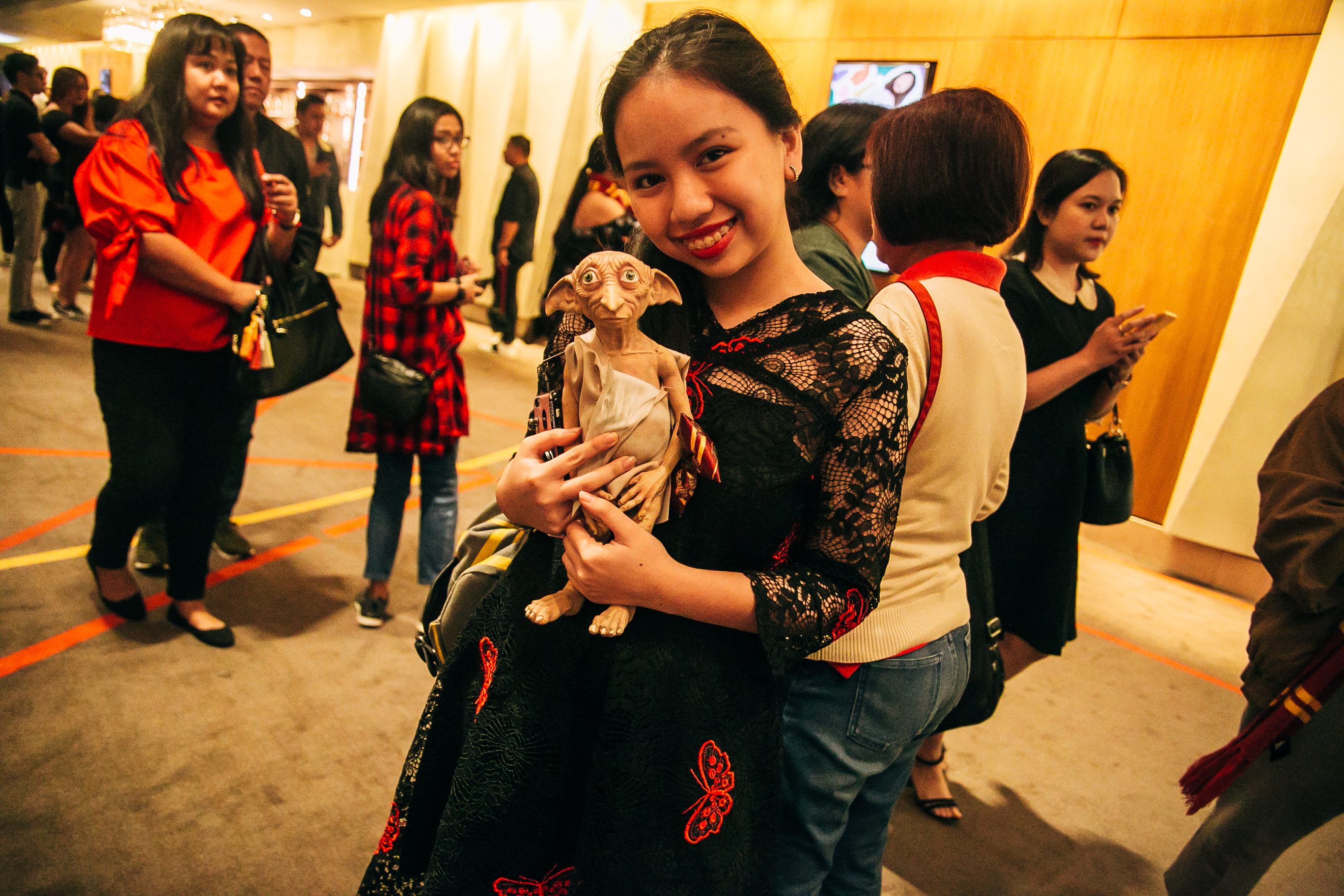
“It’s a fanbase that’s very active and continuously engages with each other. It’s its own community, and it’s powered by the numbers,” Razon continued.
The producers reached out to the local fan communities, who were very enthusiastic about the news. It has been a while, after all, since an event of this scale centered around the series came to Philippine shores. (WATCH: ‘Harry Potter’ is back as ‘Cursed Child’ hits bookstores around the world)
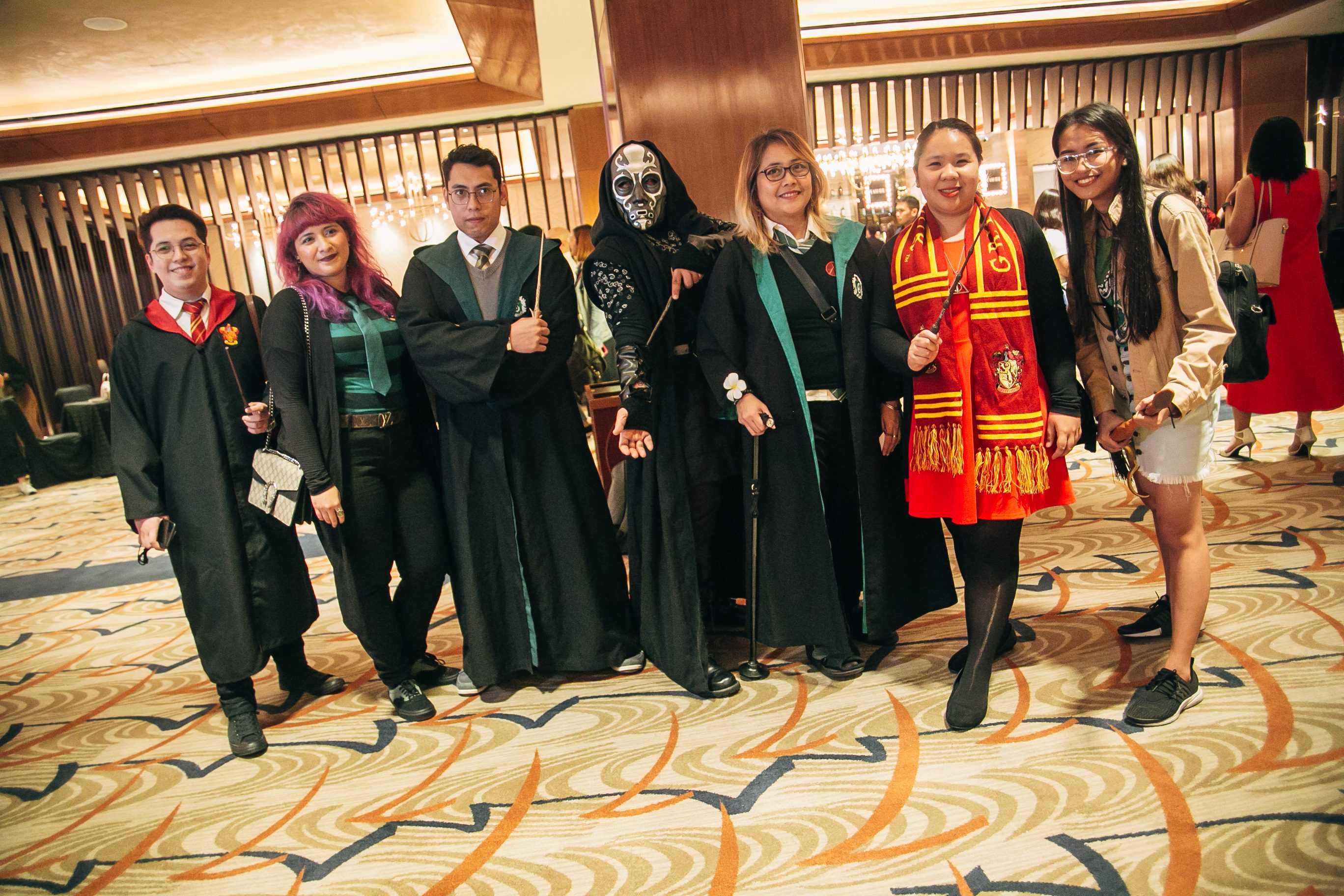
Schemm shared, “Engaging with them, as soon as we let the news out, it was actually hard to contain them to not leak it or announce it.”
Some fans came decked out in Hogwarts robes – or even Death Eater garb (in the case of one show). Others dressed in Muggle-like attire – although with the sigils and colors of Hogwarts’ four great houses: Gryffindor, Ravenclaw, Hufflepuff, and Slytherin.
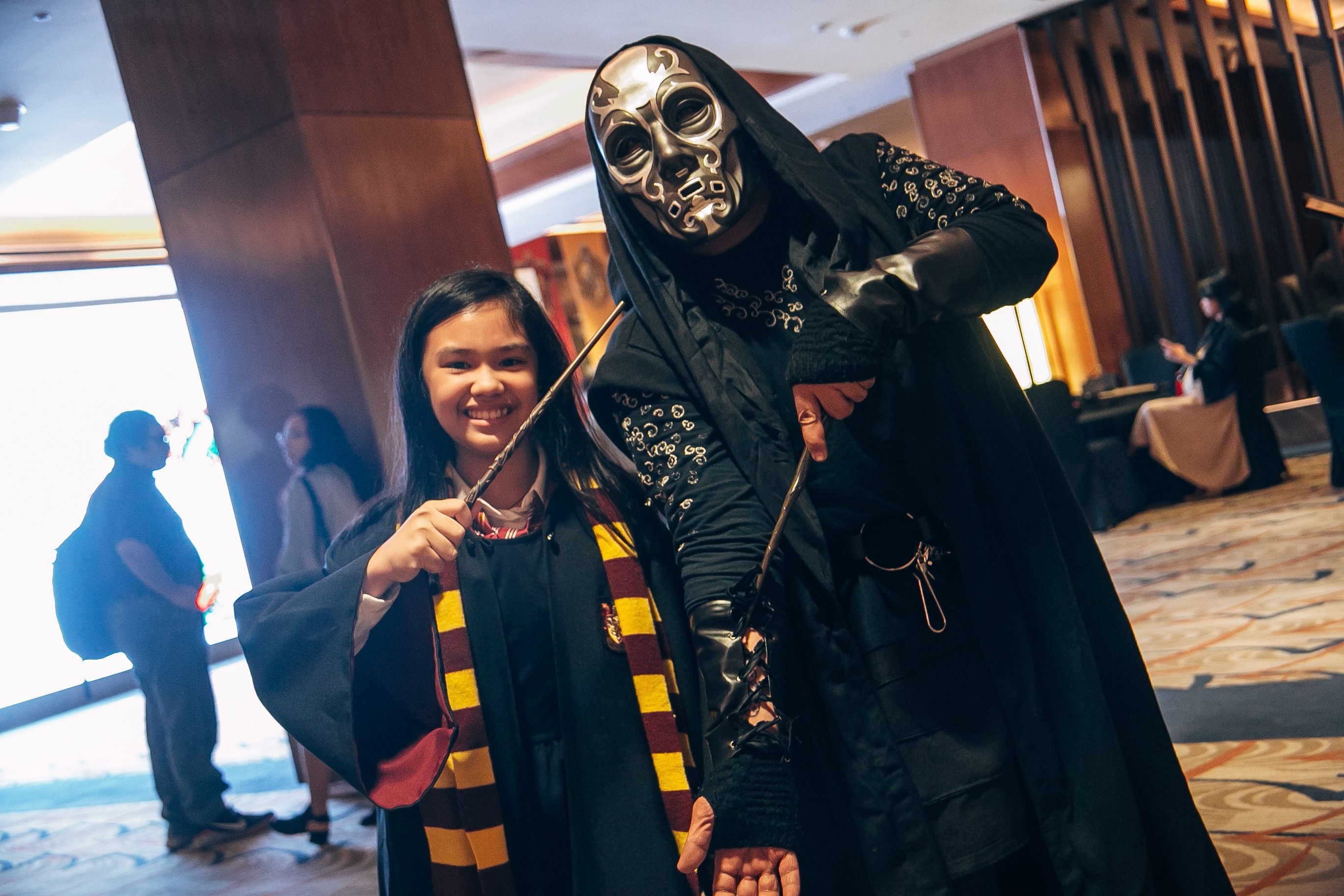
“We fully encourage significant displays of house pride,” Maestro Gerard Salonga even told the audience in the first show.
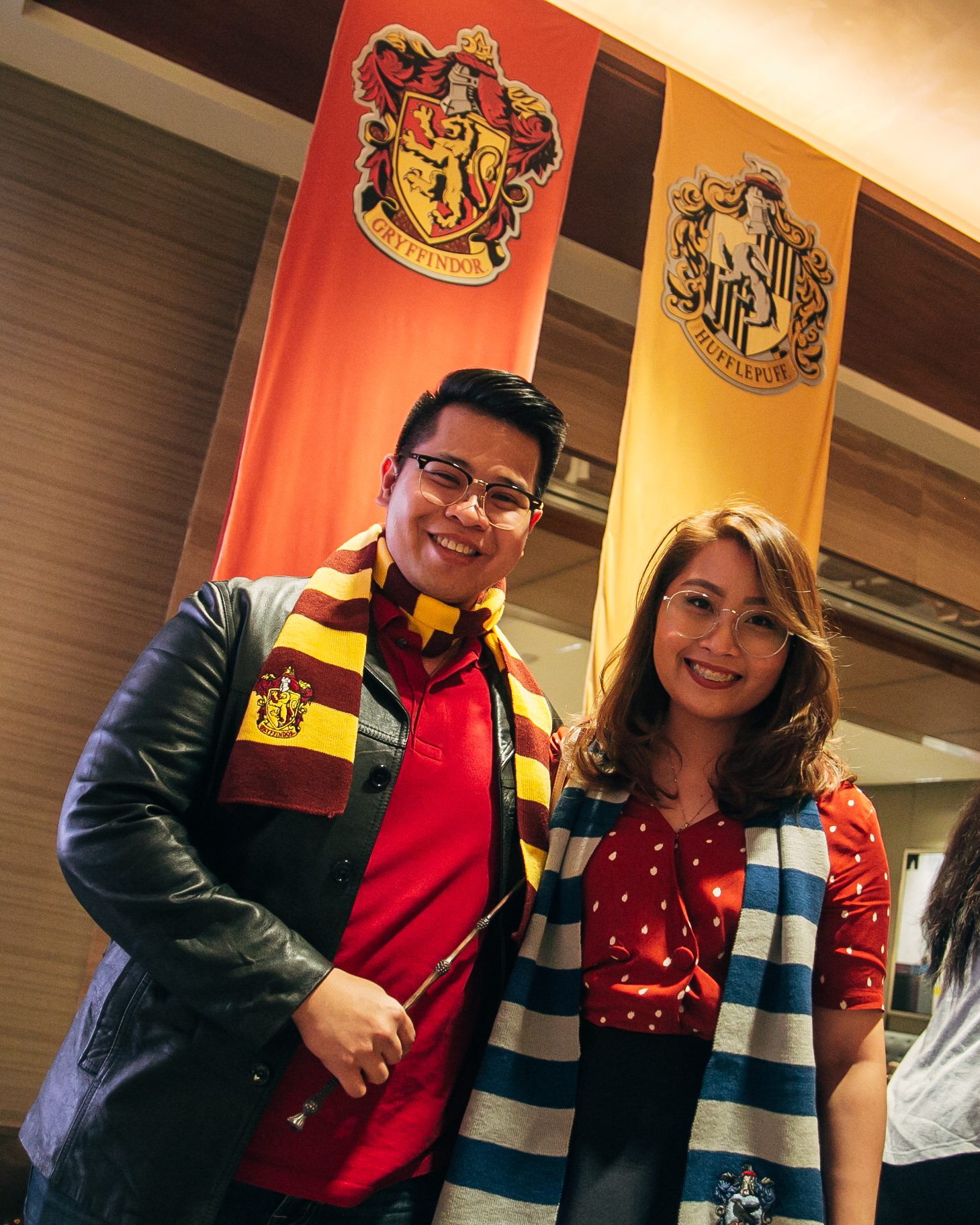
Common concert etiquette was observed, but the affair was anything but stuffy.
“Tonight, we would like you to let loose,” the conductor said – baton like a wizard’s wand in hand – before Saturday (September 14) evening’s spellbinding performance.
Cheering, especially for crowd favorites (the late Alan Rickman as Professor Severus Snape, for instance), was encouraged. (READ: JK Rowling, ‘Harry Potter’ cast remember Alan Rickman)
No one batted an eyelash as fans repeated – in unison – unforgettable lines from the movie (like Hermione’s “It’s ‘Leviosa’ not ‘Leviosar’” and “I’m going to bed before either of you come up with another clever idea to get us killed, or worse, expelled”).
Salonga said, “JK Rowling’s Wizarding World is such a remarkable place to visit. With all the characters and so much magic, we expect you to respond to the things you see and hear.”
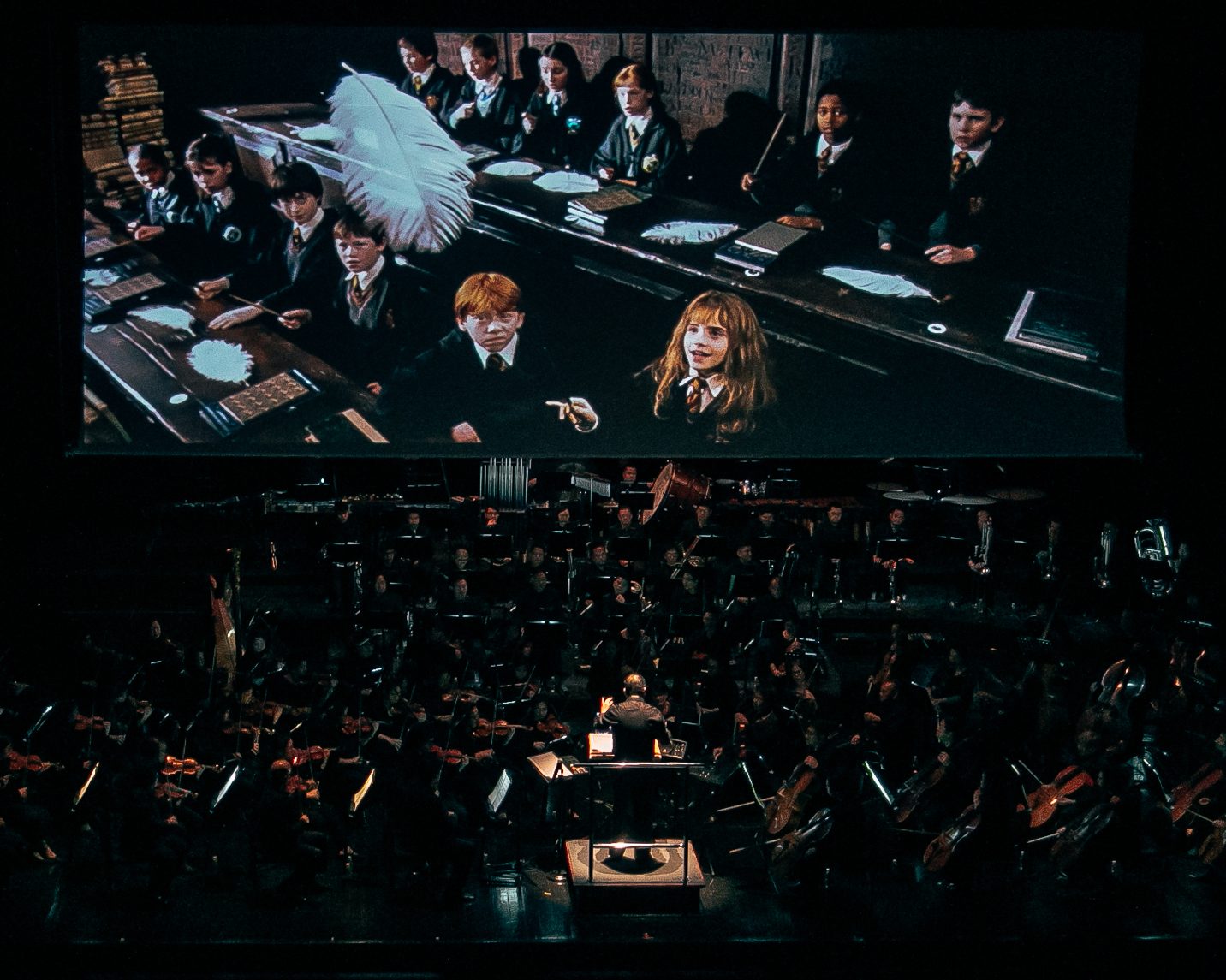
The sound of Harry’s wondrous world
Harry Potter’s first year at Hogwarts – beyond learning about his destiny as the Boy Who Lived – was about being plucked from his bleak, dreadful circumstance and introduced into a strange but wondrous world.
His iron-fisted stepparents, the Dursleys, tried to keep him away from it, but obviously in vain. Hagrid, the half-giant school gamekeeper, stormed in with a life-changing message, which also signaled his escape: “Yer a wizard, ‘arry.”

The orphan boy discovered a whimsical world that was so tremendous, having known just a musty cupboard in Surrey, England for most of his life. He saw Diagon Alley, Platform 9¾, Quidditch, all sorts of fantastic beasts, and of course, Hogwarts.
In this school where countless witches and wizards – great and evil – have walked, Harry came of age, found friendship, and encountered trials and forces most foul.

For the first movie, building this world meant scouring castles, churches, and other ancient places to transform into its hallowed halls.
But it also needed an unforgettable musical score, and that was up to the inimitable John Williams to craft something – in his signature grand, symphonic style – that would capture its majesty and whimsy.
In the words of The Goblet of Fire director Mike Newell, Williams did “what he did best” through the musical foundations he laid out for the series: “to give the story gravitas.”
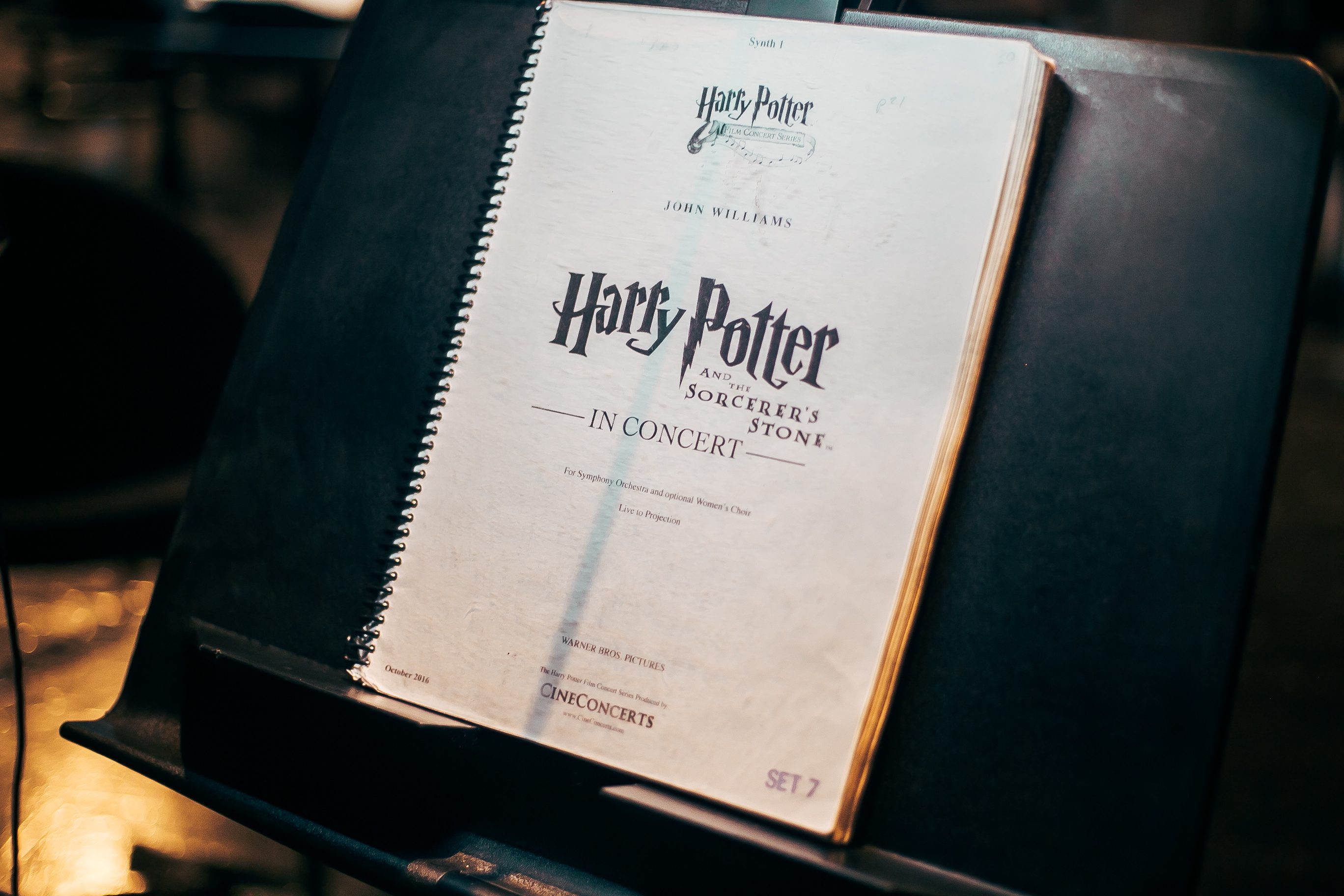
The prolific composer – with all those Academy Award nominations under his belt – built the musical foundations of the eight-part movie series, writing full scores until The Prisoner of Azkaban.
Speaking to Rappler, Maestro Gerard Salonga noted that the composer said that he “always tries to give a sense of inevitability to the music.”
“That one note could not have gone to any other note but that, given the circumstances,” he explained.
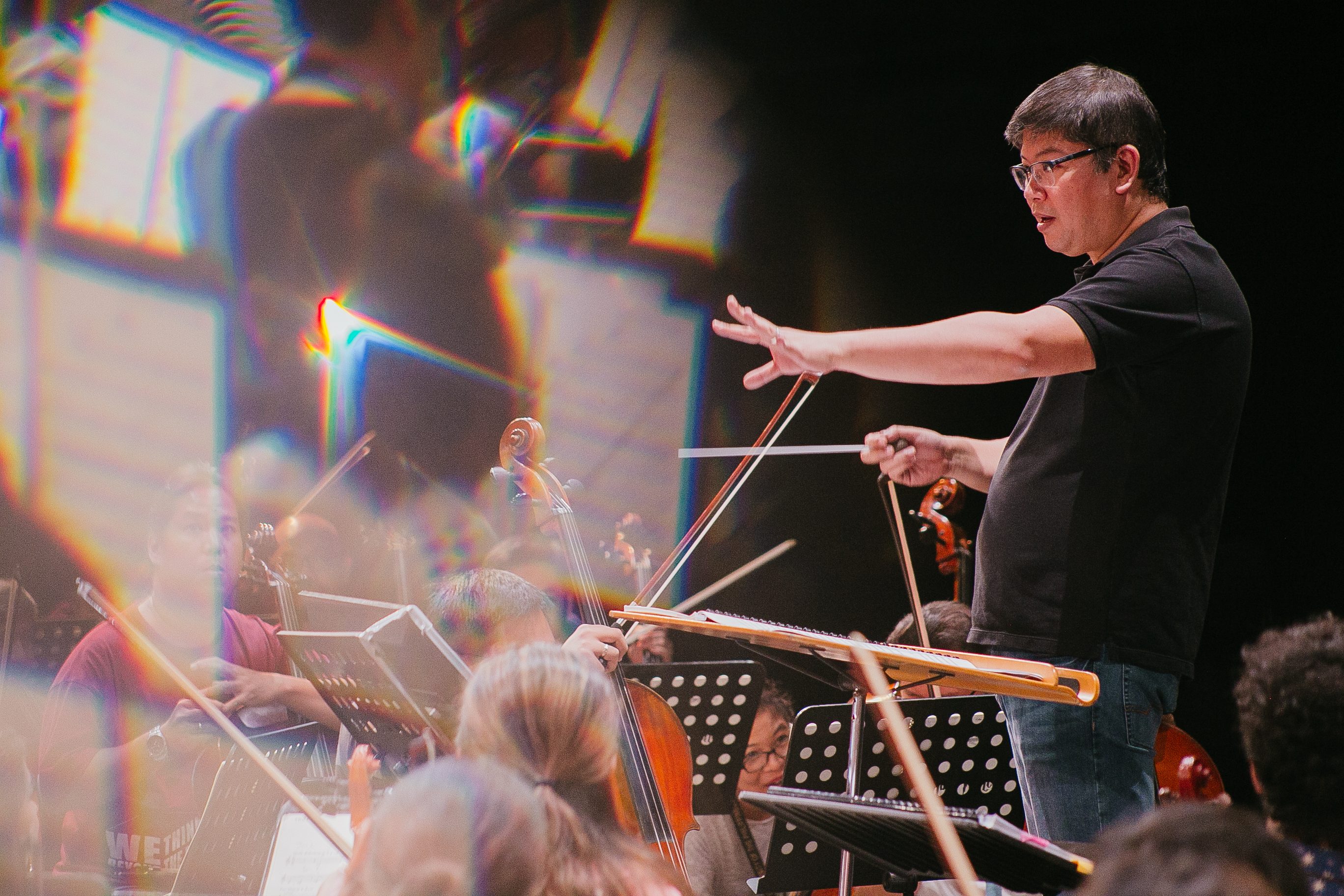
“He really has a handle on what is there, what it needs – particularly the rhythm and pace of a scene,” Salonga said.
“Whether there’s talking, fighting or effects, he knows how to find the underlying rhythm – or to contradict the rhythm that’s there – to create something that is really fit for the visual, which is already hard enough on its own.”
“This is not a huge, romantic score like what you get in Star Wars,” the conductor described Williams’s work in Harry Potter, while comparing it to another iconic work of his. “It’s really a display of his virtuosity as a composer because it’s the fantasy element that is so hard to do.”
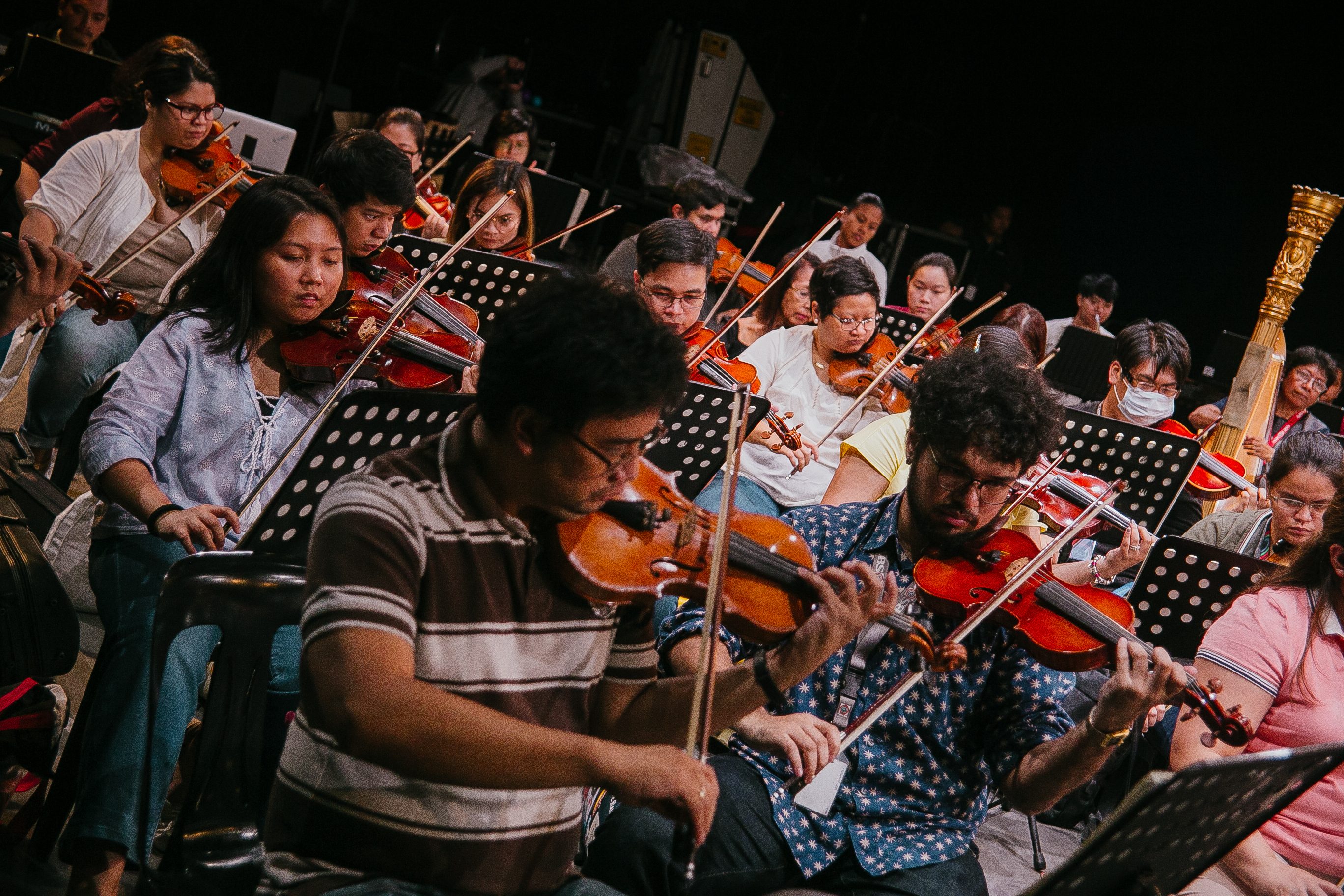
Salonga clarified, “There’s a lot of fantastic, textural and ambient sort of textures in the orchestra that underscore dialogue, that may go largely unnoticed, or meant to just set up a scenery, but they’re reminiscent of what you may hear from [Claude] Debussy or [Maurice] Ravel, or any of these great Impressionistic composers.”
“Just his knowledge of the orchestra and the sounds that it can make, this really separates him from a lot of composers.”
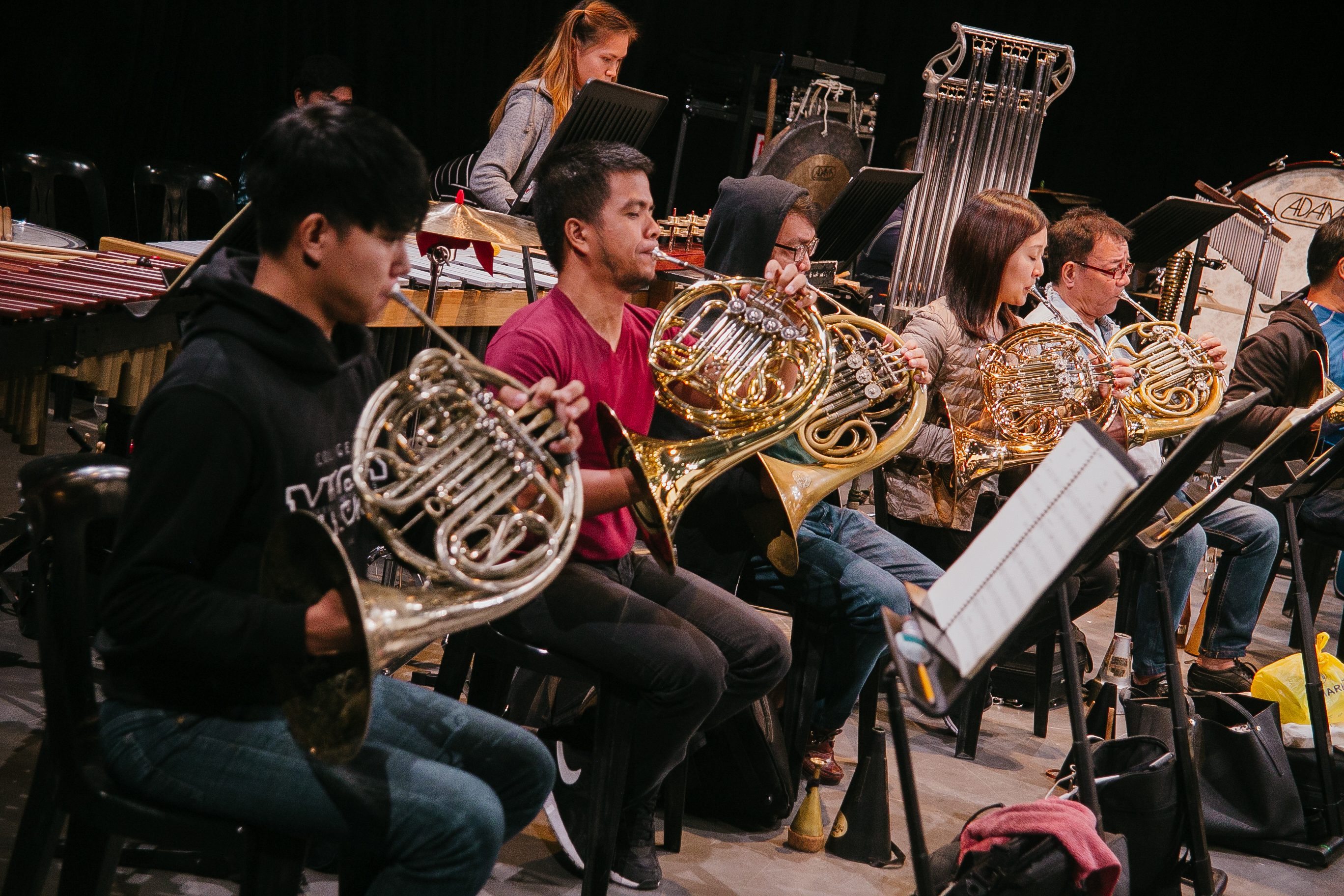
For instance, you can see his mastery of orchestral instrumentation in “Hedwig’s Theme,” a popular leitmotif in the series, which Williams – in his own words – opened with a “gossamer celeste… a little keyboard that makes pearly sounds.”
“It’s able to play very quick notes also all across the keyboard very quickly as a pianist or violinist would,” explained the composer himself in a behind-the-scenes documentary. “It seems to me, a good tool, to create this ambience of the preparation of flight or the magical ability to escape gravity… as a bird would do.”
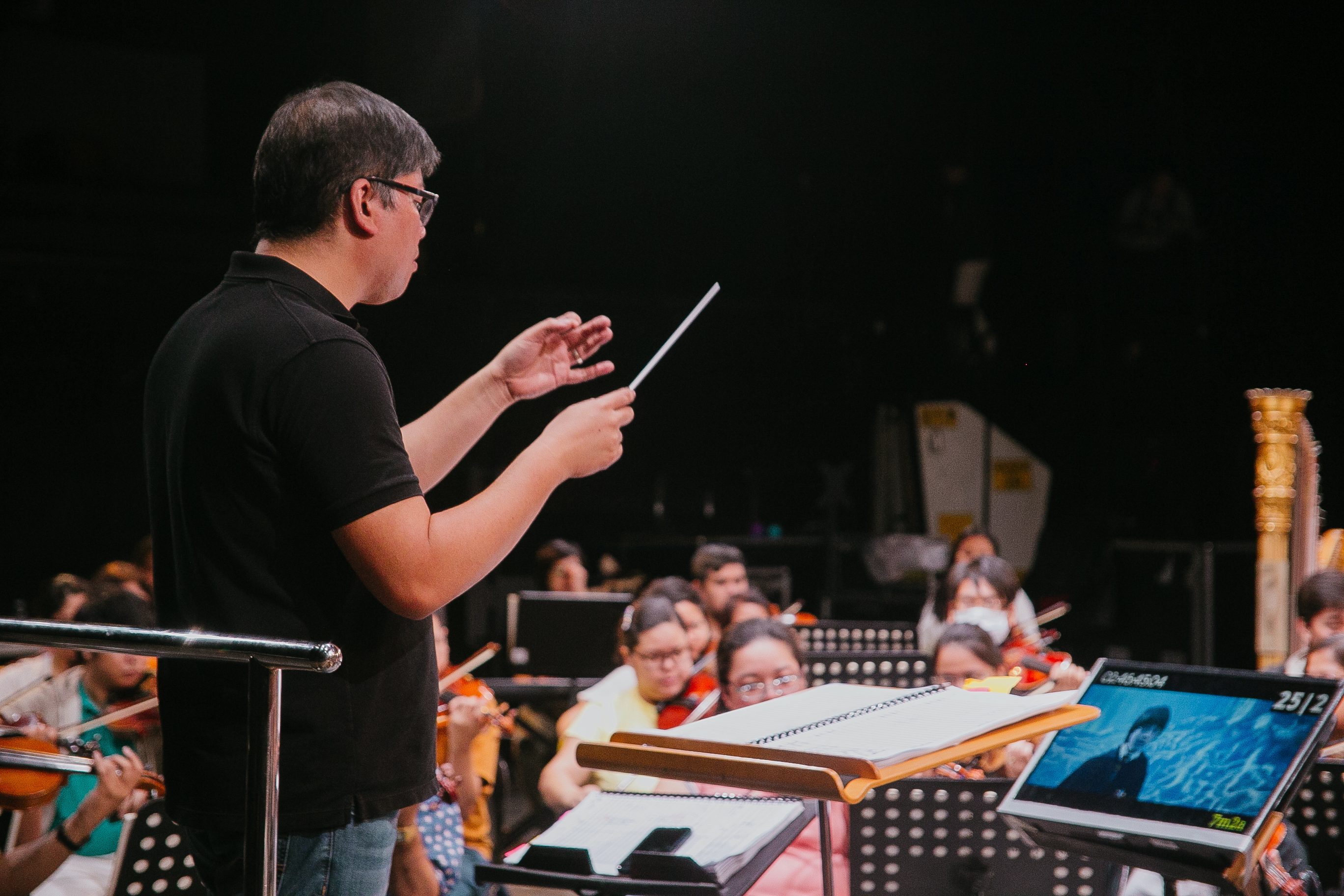
“The performance of orchestras in films when they are infused with some magic, like a great live performance, it will do something for the film,” said the famed composer. “It supports these scenes, these characters and locations, the action, the flying, and so on. The orchestra’s flying with them.”
For the Manila run of this film concert, Salonga led a 96-piece orchestra. About two-thirds of them are from ABS-CBN who, for this performance, played alongside sessioning musicians from other orchestras.
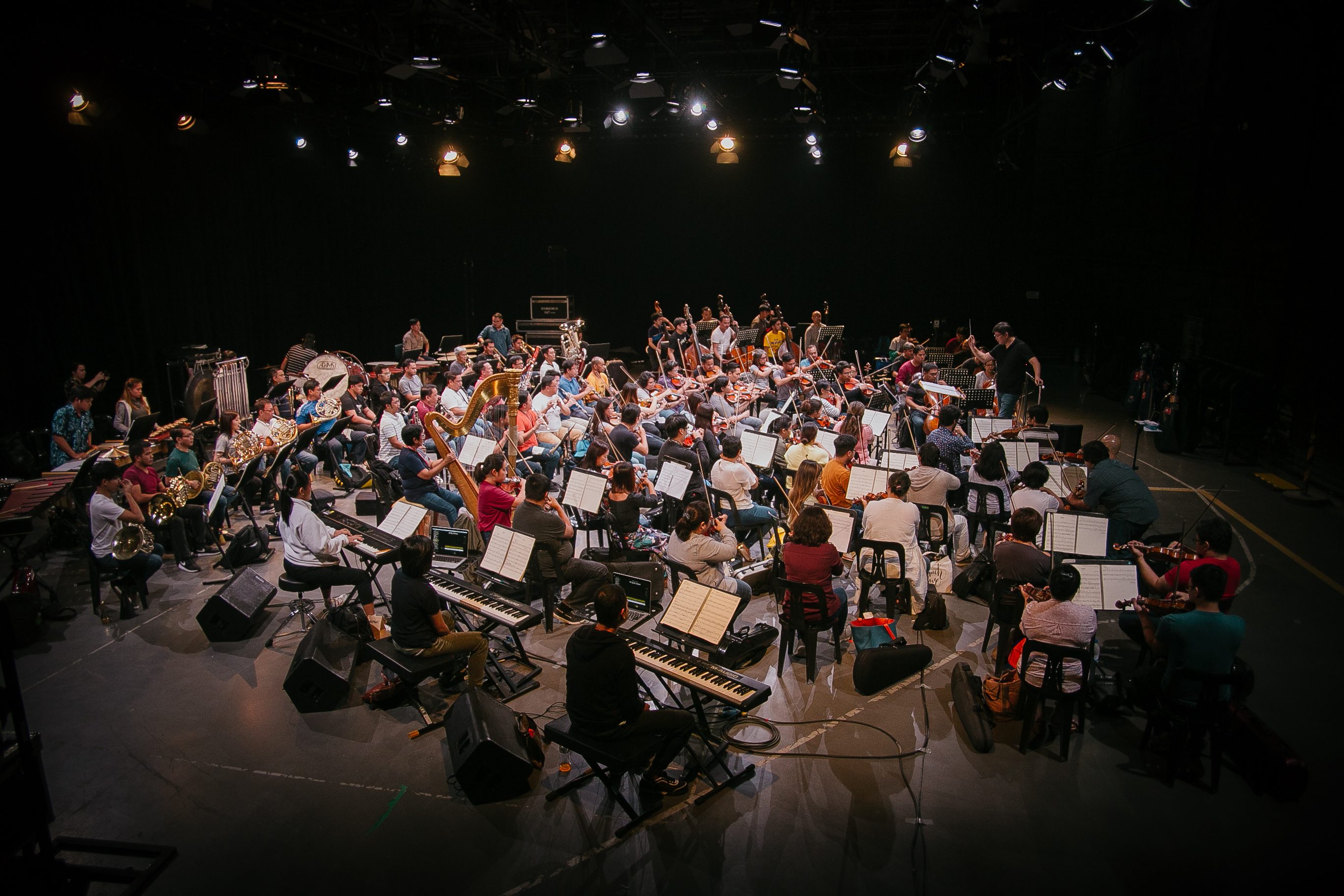
About their partnership with the seasoned conductor, Razon said, “We’re constantly inspired by Maestro Salonga, and the way that he’s so experienced working with film concerts and very versed in conducting a large-scale symphony orchestra. His attitude and ethic every day is something that is so incredible to watch.”
“It’s just great to actually see them all come together and perform together,” CC:Concepts’s Schemm also said of their collaborative effort. “It’s such a huge orchestra with such a great sound and big string sections that would really make the show pretty emotional.”
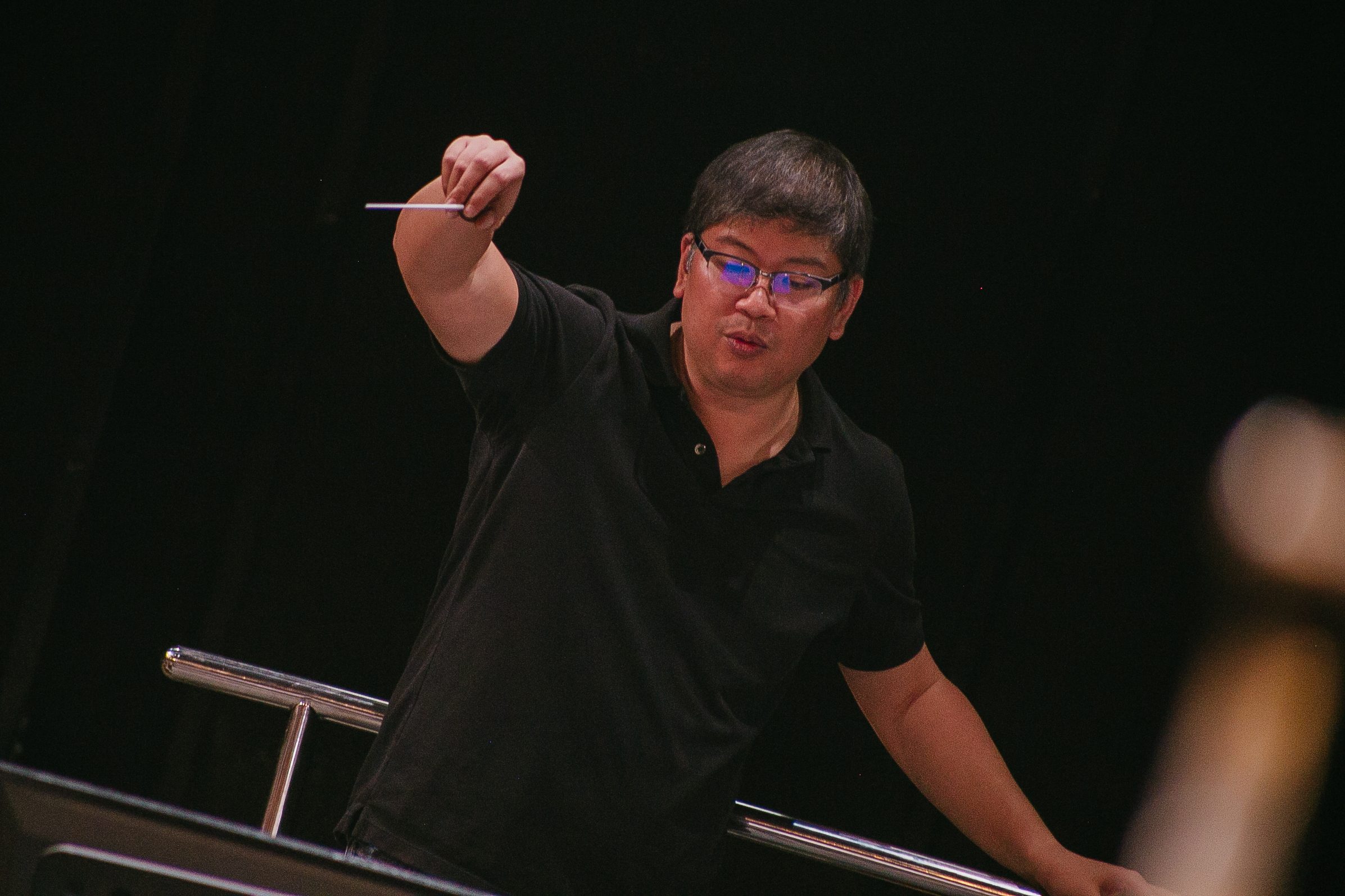
How film concerts work
Having a live orchestra play while The Sorcerer’s Stone was being projected onscreen can seem to be an atypical film viewing experience. Two things were happening at the same time, and both seemed to vie for your attention.
But this isn’t really the case, as Salonga pointed out: “It’s just like any other art form where an orchestra accompanies, whether it’s ballet or opera.”
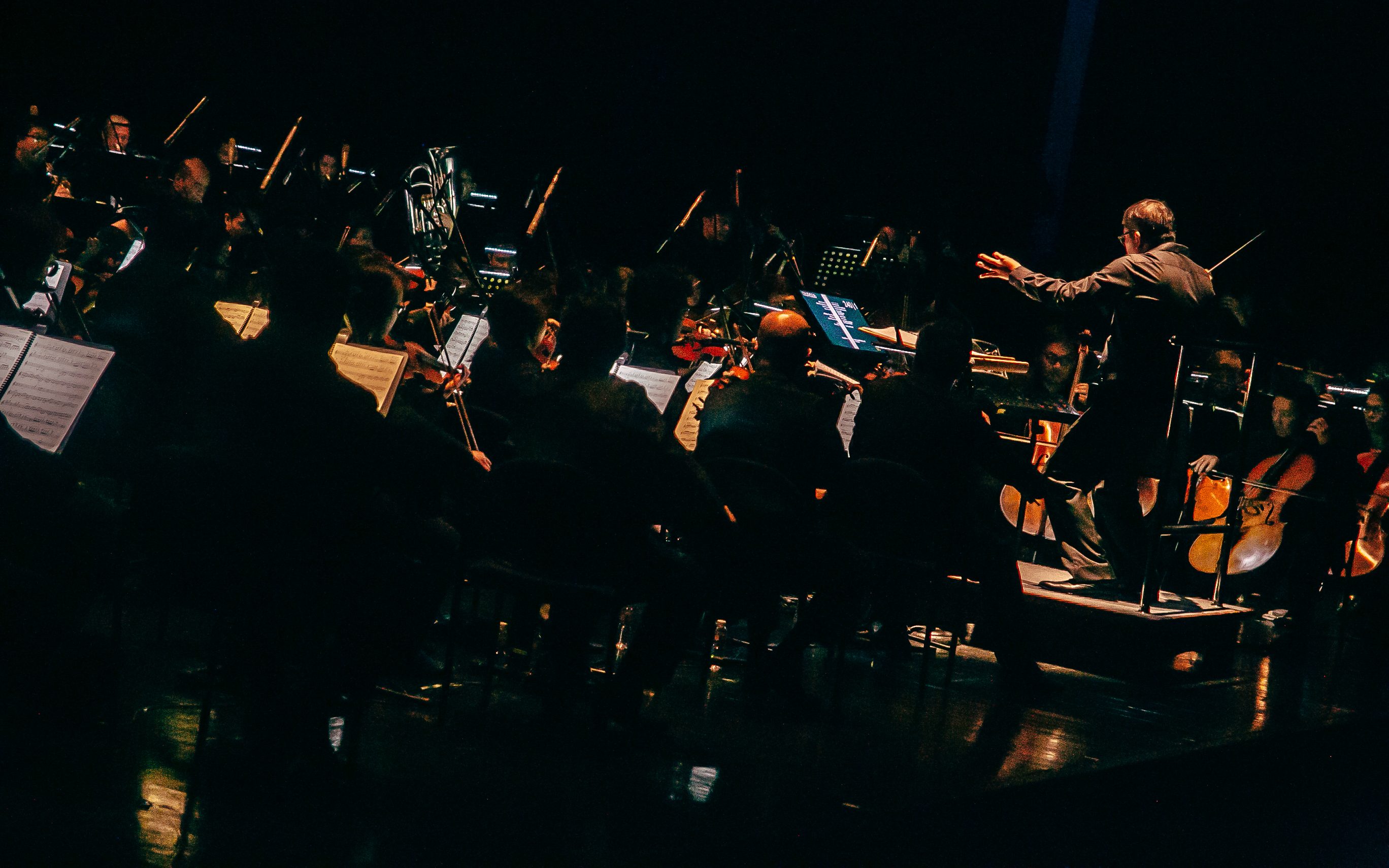
“The only real difference is to me, not to them,” he said, having led orchestras in other film concerts in the past (his first one being Pixar’s Ratatouille in Malaysia).
“I’m the only guy who feels the difference between this and any other concert.”
On the podium, the conductor has a smaller screen playing the movie in front of him. He gets cues that help him lead the orchestra to be precise and in sync with the projected image that the audience sees.
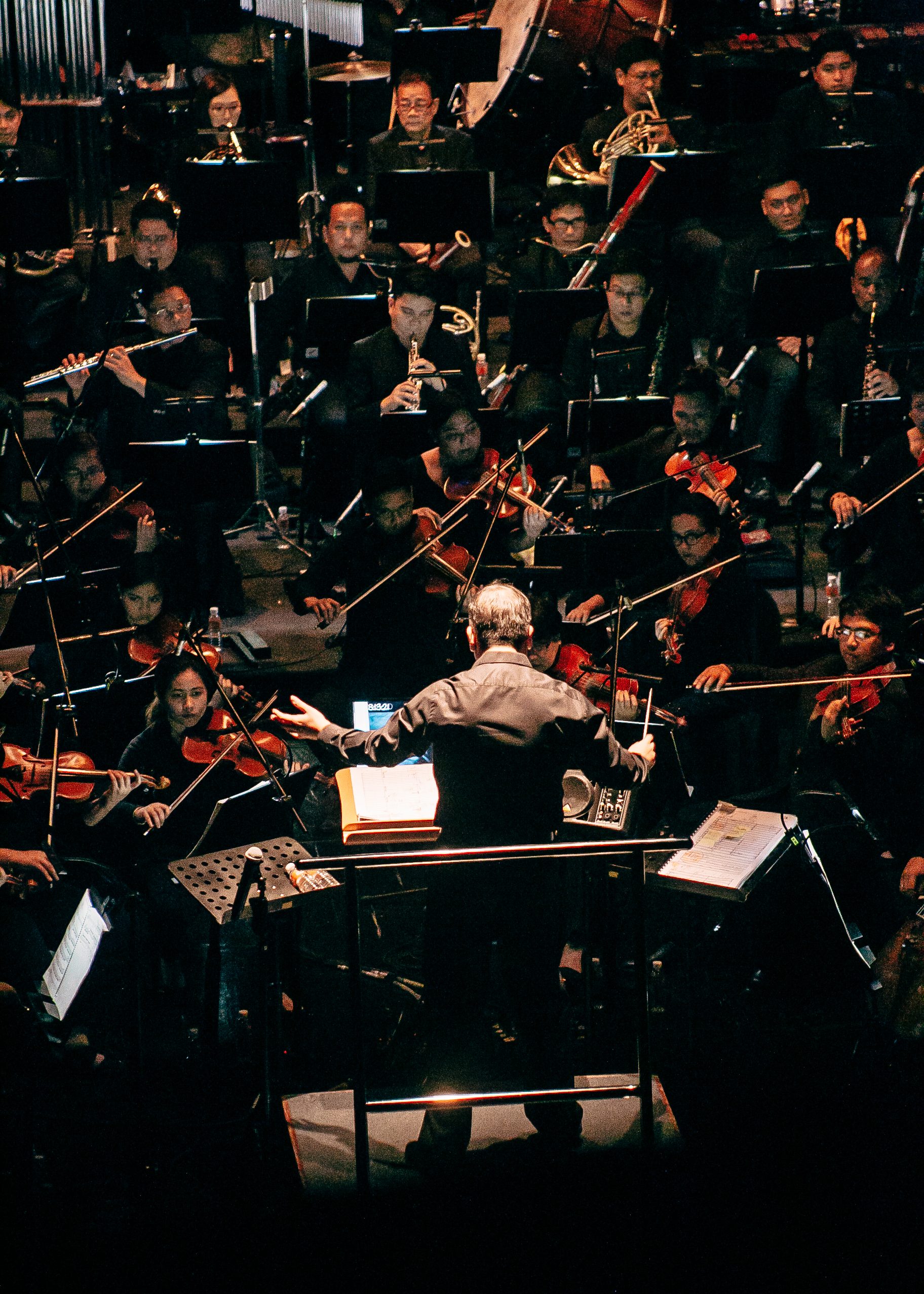
Recounting what a friend told him, Salonga said you’ll know that “the orchestra was doing its job when at very pivotal points in the film – when it mattered the most – you’re still with the film and you forgot the orchestra was there.”
“At the most crucial points of the story, you have to be absorbed into the story and not be distracted by anything else.”
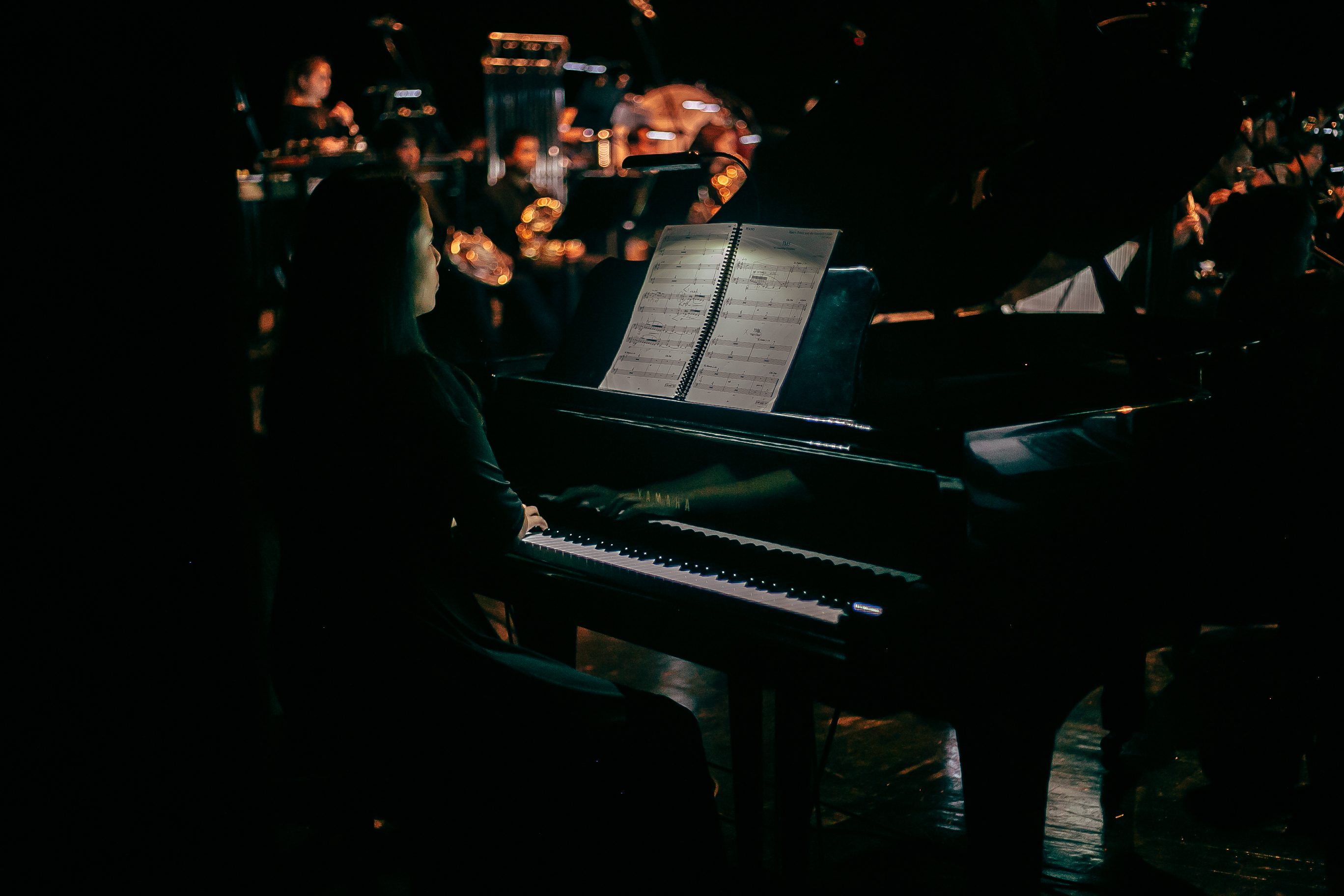
Salonga underscores that playing film music is not a category on its own when it comes to performance standards, saying, “This work is just as difficult to play as any other, and you still have to sound good.”
“As a musician, it’s your imperative to take every note that you play extremely seriously regardless of who wrote it, why they wrote it, what the venue is, or how many people are in the audience – even more so when it’s of this level.
“It’s very demanding music, and it’s a task to step up to it,” Salonga added.
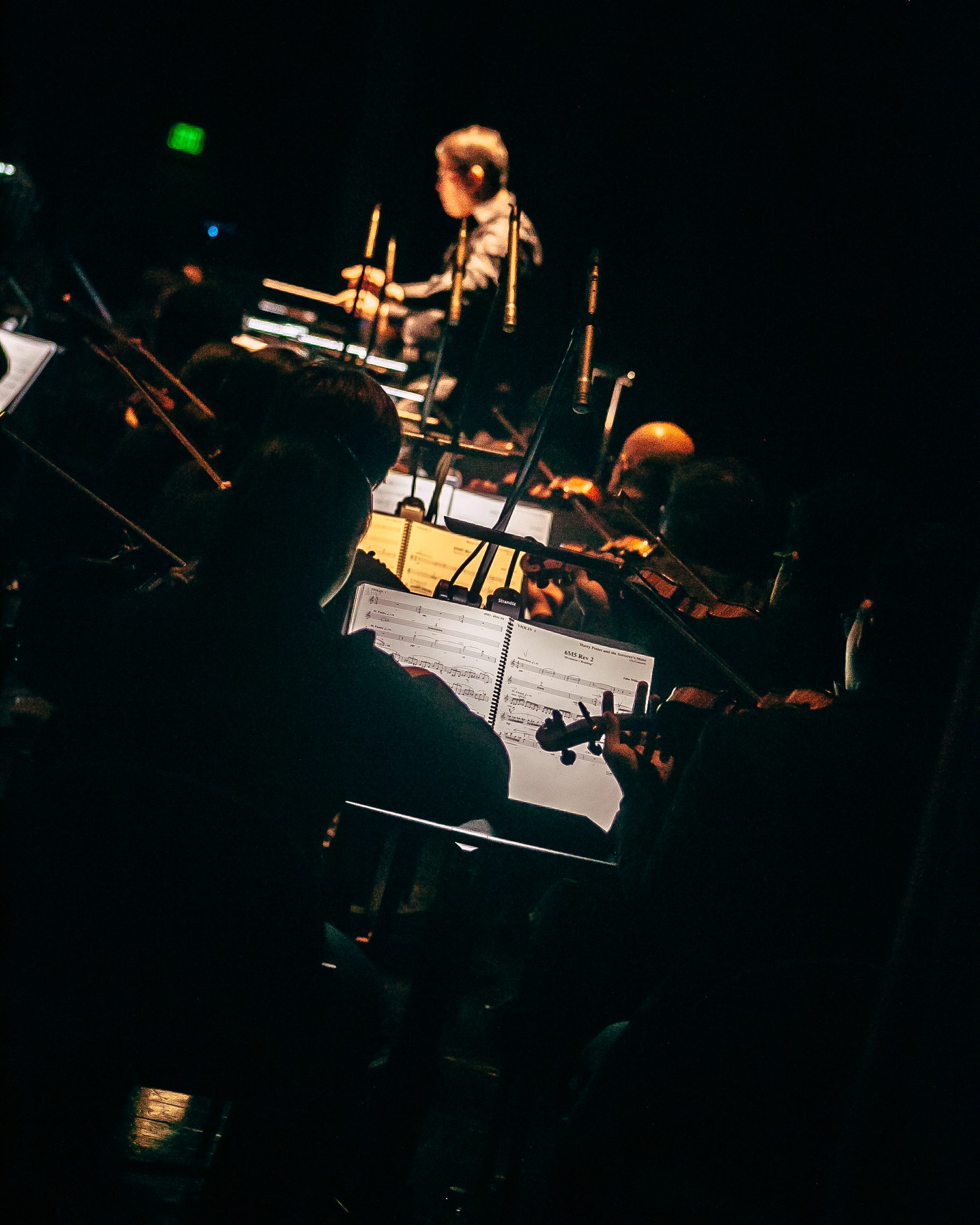
A gateway to classical music
While this Harry Potter film concert was an event for the fans, it also puts a spotlight on film music – by a composer of Williams’s stature at that.
Schemm pointed out that music has been an inextricable part of cinema from its inception: “They’d have a live orchestra or a live scoring to silent films back in the day, and you cannot consume that type of media without having music behind it.”
Razon said, “I believe that film music is what bridges the two worlds together, from the cinema to music.”
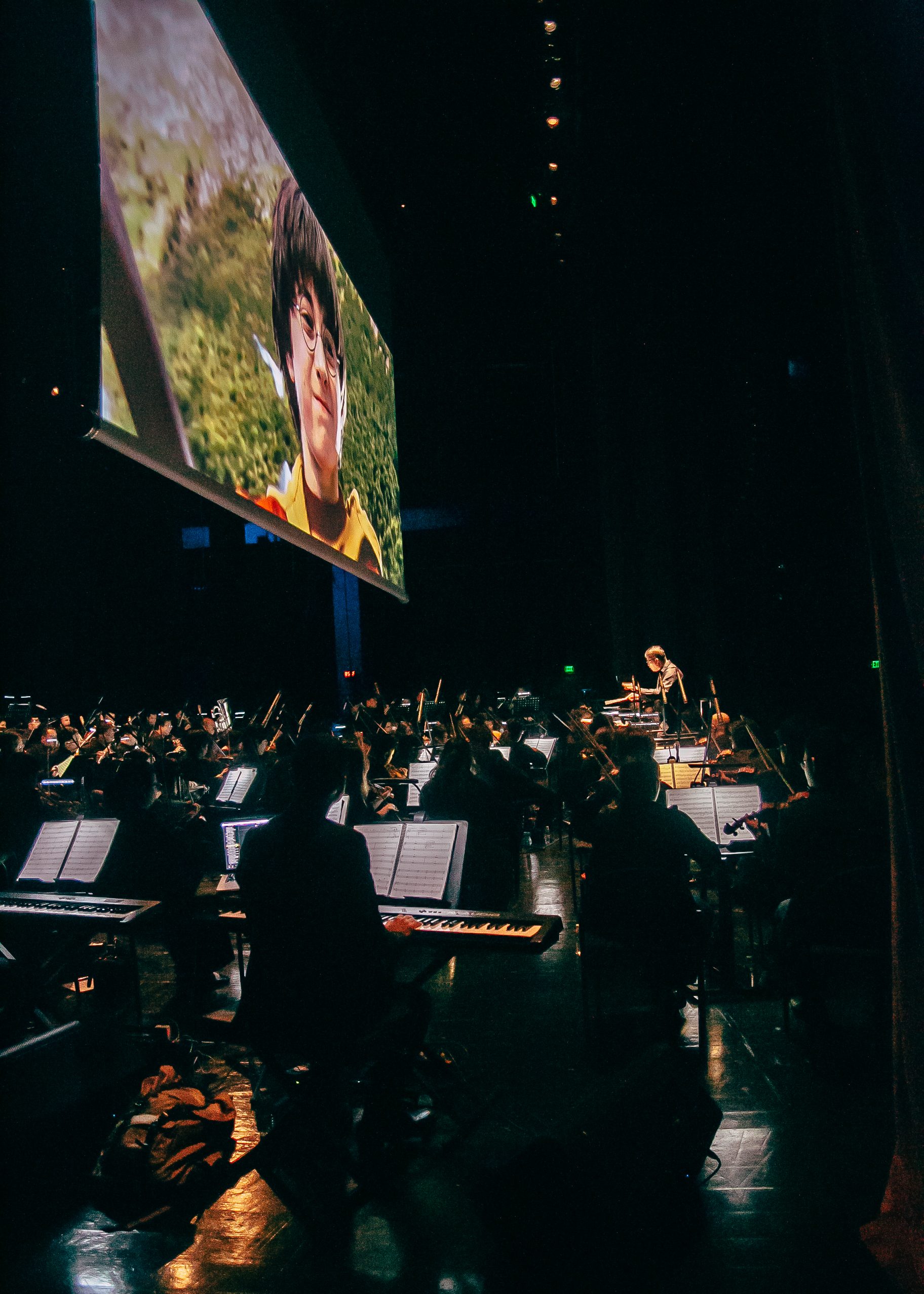
In certain cases, film music can be stylistically different, compared to the rest of the immense classical canon. Still: “Music is music, whether it be for the cinema or the concert hall,” said Richard Kaufman, an American conductor and John Williams’s friend, quoting film composer Erich Wolfgang Korngold.
Salonga agreed, saying, “I never believed that there was good or bad music. Just good or bad musicians.”
“Of course, there are things that might stylistically belong in a different setting, or for contrast’s sake, you put it there.”
He and many conductors have frequently led orchestras in performing Williams’s music and have even included it in programmes other than a film concert setting.
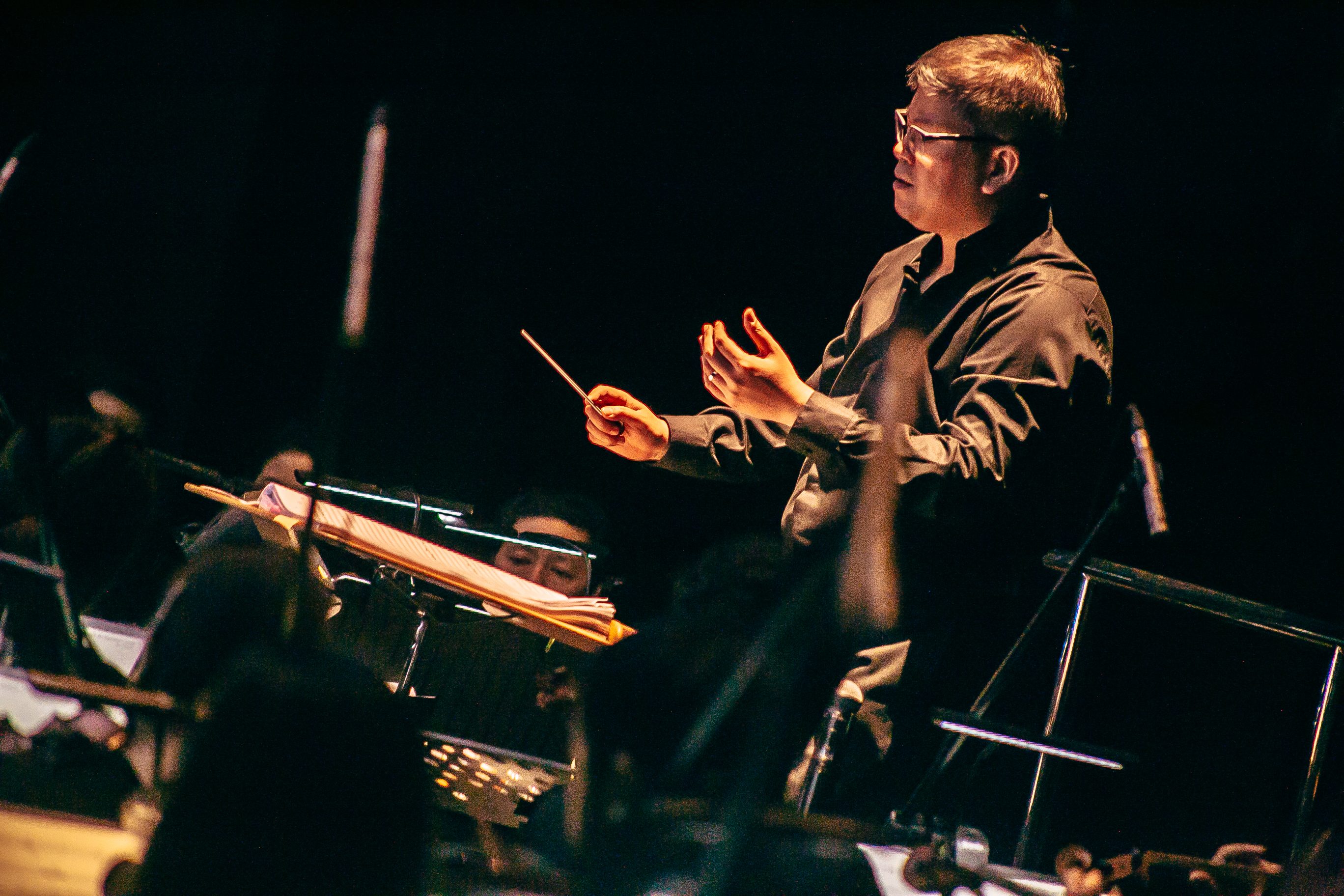
Nonetheless, a show like this can also be a gateway to appreciating classical or symphonic music at large. “That’s why concerts like these are being produced all over the world by orchestras everywhere,” said ABS-CBN Philharmonic’s director.
“I wouldn’t say that guaranteed, you’re going to a Harry Potter concert, and then next week, you’re listening to [Joseph] Haydn or [Wolfgang Amadeus] Mozart. It doesn’t work that way,” he cautioned.
“What it does is it brings people into the venue,” the conductor simply said, and there, they listen to classical music in a “familiar setting,” which is the movie.
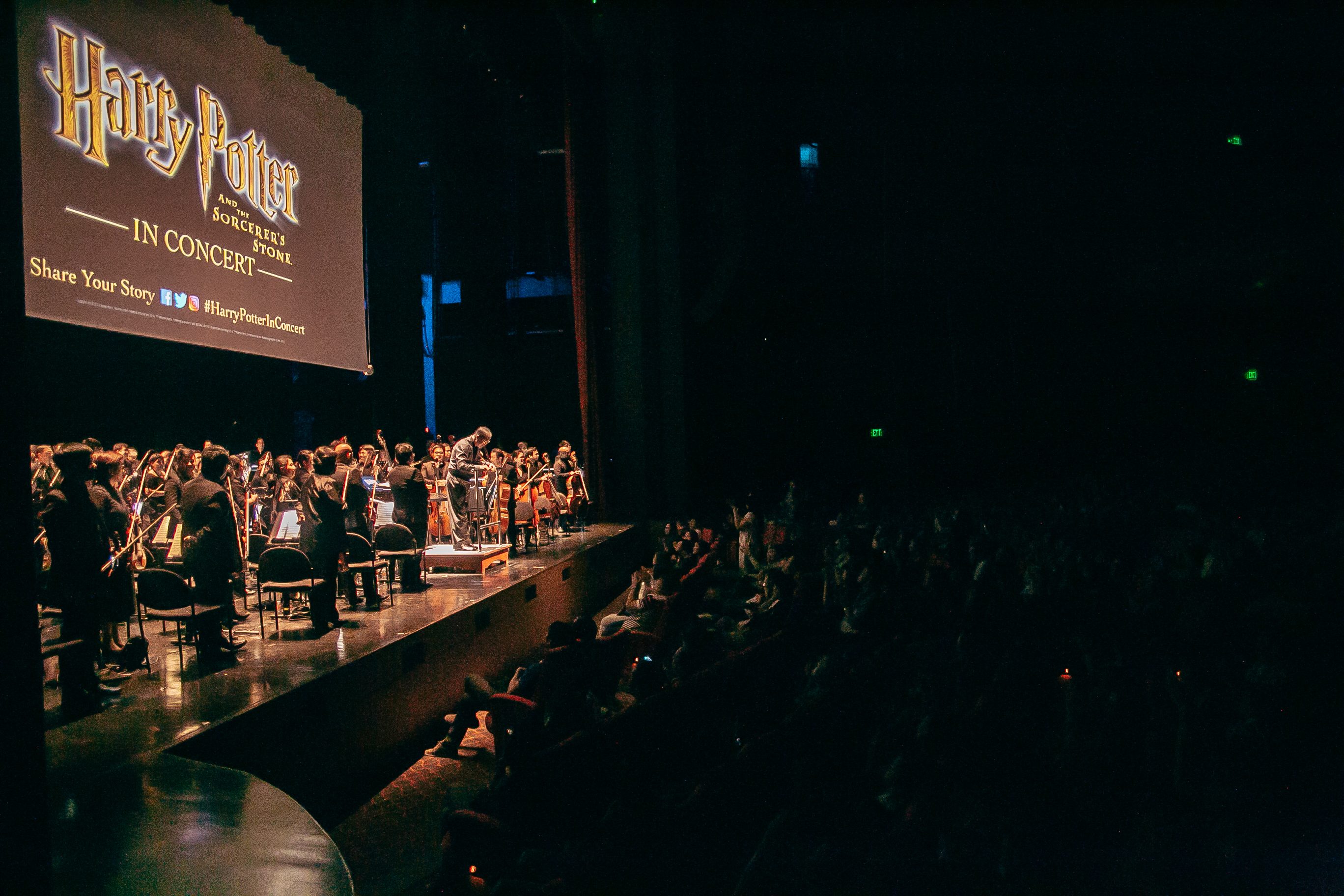
A film concert like this can also be more relaxed than your ordinary symphony concert, Salonga added.
“It’s a great family event to go to,” he said. “Maybe, after that, they’ll be hooked, or maybe not. Maybe they’ll just like film music for the rest of their life.”
“But it’s a moving experience, an experience that they’ve never had before – one that they will not forget – hopefully one that will change their paradigm towards what it means to listen to music. If we can do that, for one person, then it’s a success.” — Rappler.com
Add a comment
How does this make you feel?
There are no comments yet. Add your comment to start the conversation.